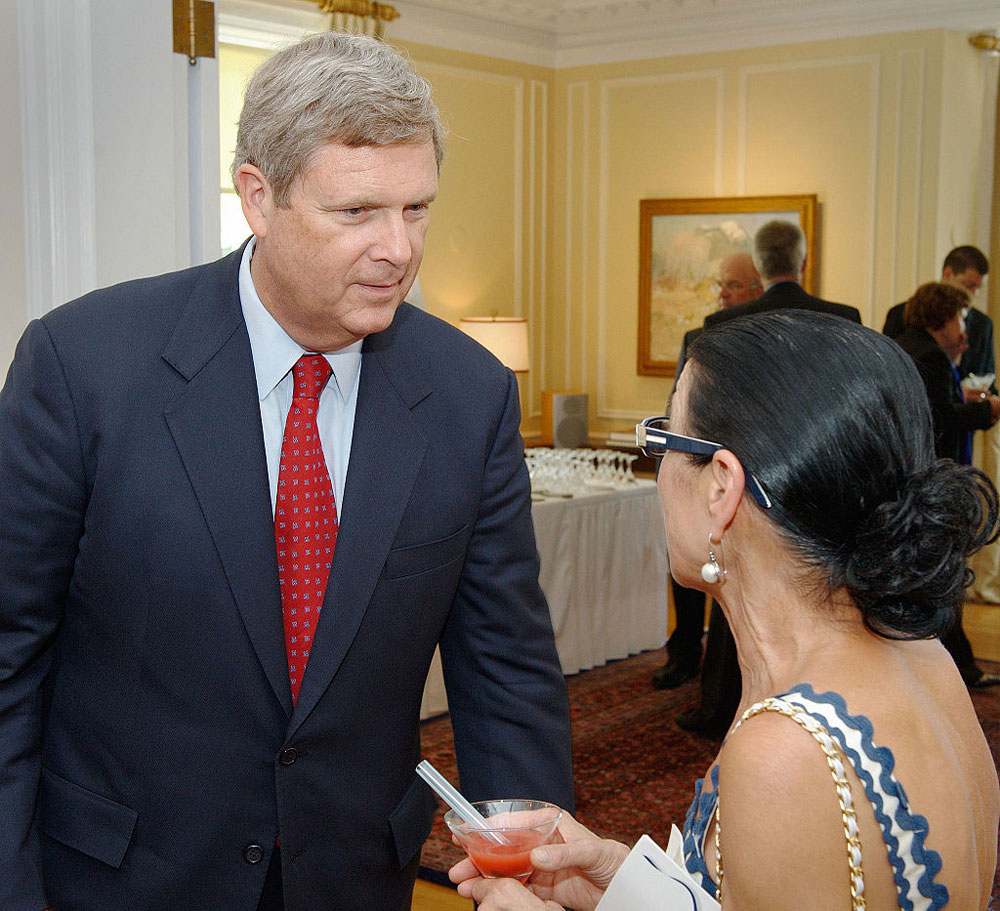
December 12, 2020; Vox and the Des Moines Register
Like never before, presidential appointments are being scrutinized by the advocacy movement that fought so hard to end Trump’s hard-hearted administration. Climate and environmental organizations are particularly worried about the selection of Tom Vilsack for secretary of agriculture, an establishment Democrat who built his curriculum through close ties to Washington DC and Big Ag.
Biden and Vilsack are longtime friends and colleagues, which would help explain the president-elect’s hope to rely on someone he trusts. Their relationship goes back 30 years, to when Vilsack helped Biden make his run for presidency in 1987. As governor of Iowa from 1999 to 2007, he is known by Democrats as someone who knows how to talk to Midwesterners, and he’s credited for helping to write Biden’s Plan for Rural America. However, his two-term legacy as secretary of agriculture under the Obama administration has progressives feeling cynical that a climate-friendly agrarian revolution is feasible. They expect an uphill, exhausting battle, yet again.
From a failure to enact better worker protections at slaughterhouses, to what animal advocacy organizations saw as a “dismal record” on animal protection, to Vilsack’s defense of Big Agriculture against “attacks” from “think tanks in urban centers” and Democrats like Elizabeth Warren and Bernie Sanders, to a failure to protect Black farmers, advocates see Vilsack’s appointment as corporate business as usual.
“Vilsack is not good for the agriculture industry, period,” Michael Stovall, founder of Independent Black Farmers, told Politico. “When it comes to civil rights, the rights of people, he’s not for that. It’s very disappointing they even want to consider him coming back after what he has done to limited resource farmers and what he continues to do to destroy lives.”
More than anything, advocates distrust Vilsack’s corporate ties. Sierra Club was quick to point out that he used the revolving door as an Obama cabinet member to land himself a job as a lobbying executive for the dairy industry. As CEO of the US Dairy Export Council, Vilsack made nearly $999,421 a year and pushed for aggressive international trade policy to advance US dairy export markets into the Middle East/North Africa, South America, and Southeast Asia. Dairy production volume, according to Vilsack himself, grew 552 percent in the past 25 years for a profit of $6 billion in 2019.
Sign up for our free newsletters
Subscribe to NPQ's newsletters to have our top stories delivered directly to your inbox.
By signing up, you agree to our privacy policy and terms of use, and to receive messages from NPQ and our partners.
Industrial beef and dairy farms carry much blame for the methane emissions that are fueling the climate crisis, yet they fight every state and national policy that might harm their corporate earnings. They are known for being inflexible, unwilling to cede “an inch on climate change.”
“Pulling Tom Vilsack directly from the dairy lobby to the agency meant to regulate that industry would be disastrous for the climate,” Jennifer Molidor, senior food campaigner for the Center for Biological Diversity, wrote to Sierra Club. “The US needs a secure, just, and climate-friendly food system, not an agency chief who will continue business-as-usual while the climate crisis grows.”
The distrust goes deep as advocates see Vilsack as the ultimate politician, able to cozy up with farm and animal industries while publicly pushing for progressive solutions that never become public policy.
“If Vilsack is so flawed, then why has Biden chosen him to lead the agency? It might be because he is listening to those who insist that Democrats’ slipping rural margins need to be shored up with a ‘safe,’ status-quo leader at USDA. Such thinking would be misguided,” writes Charlie Mitchell for Sierra Club. Vilsack represents corporate control of a non-sustainable agricultural system that exploits rural America for profit and displaces small family farmers, while holding incredible power over public policy and our food systems.
If we have learned anything from the COVID-19 pandemic, it’s that Big Ag, responsible for 40 percent of our food production, is useless in tackling the “hunger industrial complex.” Vilsack’s appointment as secretary of agriculture undermines the voices of farmers from the heartland—voices like the Iowa Farmers Union, who see climate legislation as key to protecting locally-owned family farms and future job security. Those are the voices that Democrats should uplift to win rural hearts and minds.—Sofia Jarrin












